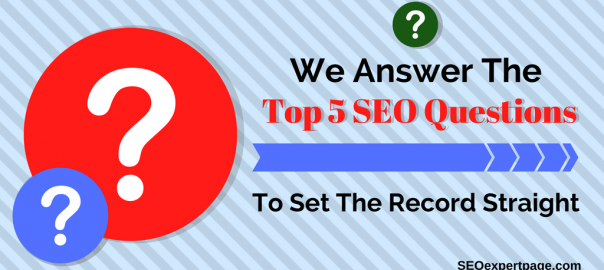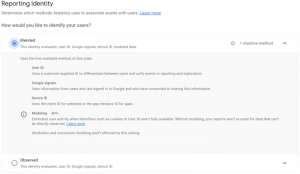
Businesses – and even the pros – never run out of SEO questions. From the basics, such as on- and off-page optimization, to more complicated technical queries, this subject is as dynamic as it is timeless.
Whether you’re into ecommerce or are simply out there to share your thoughts on the Web, you’ll need SEO to ensure people can find you.
Just made an account online? Not sure how SEO can help your small startup? Need to boost your blog’s presence? We’ve gathered the most on-demand SEO questions for your convenience. Together, let’s break some myths and establish truths.
*Note: these questions have been rephrased for brevity and relevance to our audience.
Top 5 SEO Questions: Answered
1) How do I start on-page SEO as a beginner?
This is one of the frequently asked SEO questions by businesses and individuals. Before you can even visualize the thousands of traffic you’re about to get, you first need to check your site’s performance.
A website audit is first done BEFORE any proper SEO can begin. This ensures that problems are correctly identified, and proper solutions administered. On-page factors that need to look into include (but are not limited to):
- Type and quality of content
- On-site elements (such as page titles and meta descriptions)
- Optimized Images
- Page load speeds
- Mobile-friendliness
- Structured Data
- Broken links/redirects (internal linking)
Two of the free tools you would be using during this time would be Google Analytics and the Search Console. They are great for general information about your site, such as:
- Who are your audience (what type of people are visiting your site)
- Where are they coming from (devices)
- What pages are they landing/visiting on (user flow)
- What they did there (did they click on any of your calls to action buttons?)
Remember: Google as a search engine is a machine. Machines have a language of their own that helps them quickly and properly sort information across the Web. If Google can’t or has trouble understanding your website details, this might affect your ranking.
And when you’re not seen on Google’s first page, this will affect how many people visit your site. Low traffic could equal to low lead generation and sales.
2) What are the most important SEO ranking factors?
Whether you’re a beginner or a pro, there are three important Google ranking factors that you need to consider: links, content, and RankBrain. Of course in reality, there are more than 200 – but focus on these first three so you can nail the rest.
Links will always be vital. How else can Google tell if a website is relevant if there are no links pointing to it? If one of your SEO questions is HOW MANY links does it take, that’s beside the point. What matters is HOW STRONG the links are.
For example: as a beginner, let’s say you only managed to get a couple of links in several months since launch. However, these are from established online authorities such as reputable news (TIME, CNN, Forbes), publishing platforms (The Huffington Post, Lifehacker, Reader’s Digest), and review sites (Yelp, TripAdvisor, etc.). This is enough to boost your reputation and earn you a spot in the search results.
Where would you be without content. Like links, these need to be of high-quality and significant for your target audience. When creating content, make sure they are informative, engaging, and evergreen.
Although fresh and fast might go viral, in the end, evergreen content is more sustainable because it hardly goes out of trend. All you need to do is keep it updated with the latest changes, and you have content you can use again and again.
Google’s recent AI, RankBrain, is the third most important. Introduced as a way for the search engine to understand vague, new, and confusing queries being entered into its system, this program is a step ahead because it’s focused more on context than keywords.
This means that although keywords are not yet obsolete, spamming content with them is not wise. Instead, pus efforts towards creating content for humans.
- Use search terms that people actually use in daily conversation.
- Refrain from jargon or industry-specific phrases.
- Make it all sound natural. Craft content like you’re speaking to your audiences face-to-face.
3) Is it possible to generate website traffic with zero marketing budget?
This is perhaps one of the most popular SEO questions. Can you get traffic without a budget? It’s possible – but you’ll need to invest time and effort.
Depending on your business goal and/or deadline, it might NOT be very wise to try and attract free traffic under a zero marketing budget. However, if money’s really tight, then this is one avenue that some people have had some success.
A good example would RealtimeBoard, a collaboration tool. In their article for Kissmetrics, they’ve detailed how they were able to get early bird signups with ZERO budget. A few of their tactics include:
- recommendations from their personal networks (friends and family),
- free sample of their product to relevant institutions (e. schools, startup creative teams, etc.), and,
- making their product available on the right platform (in their case, Chrome Web Store).
There are lots of methods to help you spread the word about your website. However, don’t expect overnight miracles. It might take weeks, months – or even years – before you see the kind if traffic that matters most: traffic that converts into sales. For this, you might need to set aside a budget that works for you.
In the meantime however, techniques such as content syndication, PR, and email marketing can help you generate website traffic with little to zero marketing budget.
4) Have you changed your SEO practices due to the Panda and Penguin updates?
This is probably one of the more interesting SEO questions that some experts are hesitant to answer. Regarding changing strategies due to algorithm updates: well, it’s YES and NO.
YES, because you need to upgrade your methods to meet new challenges. If you don’t experiment, find new solutions, or customize your techniques, you’ll be left behind. Let’s face it: SEO is a super dynamic industry. So adapt – or die.
NO, because there are some things that remain the same. For instance: links and content are still crucial ranking factors. Plus, they’re tried and tested. If you’re new to the industry, you save time and money by simply learning from these existing methods. No need to totally be unique.
5) I have hired an SEO team and they have been working for months now, but my ranking has remained the same. How long should I wait?
Ranking on Google’s first page depends on plenty of factors (so far, we only about 200 – but there could be more). If results are taking a while, we could presume that perhaps:
- the chosen keywords have too much competition
- on-page elements are not yet optimized
- the site is not mobile-friendly
- there are negative backlinks
- you lack quality content (on- and off-page)
- there is a penalty from Google
- SEO team is using outdate tactics (such as Web 2.0 or keyword saturation)
If you’re working with an SEO agency and you see little to NO improvement during the first three months, be curious.
Coordinate with them about the situation. Ask questions. Inquire about their process. Take a look at the site yourself. Or get a second opinion.
While you normally wouldn’t see much result during the first six months, technically, there should still be some kind of progress.
Digital & Social Articles on Business 2 Community(79)
Report Post








